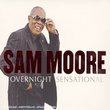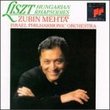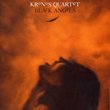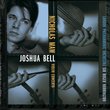| All Artists: Ellen Taaffe Zwilich, Michael Stern, Nexus, IRIS Chamber Orchestra, Saarbrucken Radio Symphony Orchestra Title: Ellen Taaffe Zwilich: Violin Concerto; Rituals Members Wishing: 0 Total Copies: 0 Label: Naxos American Original Release Date: 1/1/2005 Re-Release Date: 9/20/2005 Genre: Classical Styles: Forms & Genres, Concertos, Symphonies Number of Discs: 1 SwapaCD Credits: 1 UPC: 636943926826 |
Search - Ellen Taaffe Zwilich, Michael Stern, Nexus :: Ellen Taaffe Zwilich: Violin Concerto; Rituals
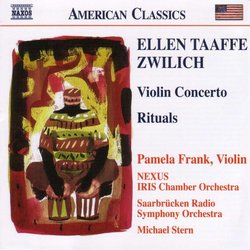 | Ellen Taaffe Zwilich, Michael Stern, Nexus Ellen Taaffe Zwilich: Violin Concerto; Rituals Genre: Classical
|
Larger Image |
CD DetailsSimilar CDsSimilarly Requested CDs
|
CD ReviewsFive stars for Ellen, one for Naxos Redgecko | USA | 01/06/2006 (3 out of 5 stars) "Amazon neglected to list the tracks so I will: 1-3: Concerto for Violin & Orchestra (1998) 26:03 4-7: Rituals for Five Percussionists & Orchestra (2002) 25:59 If you're a collector of fine violin concertos then you'll want to get this recording because it's the only recording of this concerto written by this Pulitzer Prize winner in music. It is a lovely piece and deserved to be coupled with similar pieces like Zwilch's Double Concerto, Triple Concerto or Concerto for Violin, Cello & Orchestra. Someone at Naxos wasn't thinking when they followed the lovely Violin Concerto with an often loud experimental piece for percussionists. It's not a terrible piece and has its moments, but it doesn't belong on this CD. And, since each of the two pieces is of equal length, you're really paying $7 for the concerto. My 3 star isn't against Ellen Zwilch who deserves high marks for another fine concerto but for Naxos who gets low marks for a poorly designed program, and at only 52:04, a stingy one at that. Recommended only if you can't wait for another recording of the Violin Concerto coupled with something that goes with it. Redgecko " Worth Buying for the Violin Concerto's Middle Movement Alone J Scott Morrison | Middlebury VT, USA | 10/02/2005 (5 out of 5 stars) "When Ellen Taafe Zwilich wrote her Violin Concerto in 1998 she brought a violinist's perspective to it; she had played in Stokowski's American Symphony Orchestra for a number of years. She chose Pamela Frank, the extraordinary violinist daughter of two pianists (Claude Frank and Lilian Kallir), to play its première with the Orchestra of St. Luke's under Hugh Wolff. In this recording, made in 1998 (before Frank began experiencing hand problems that necessitated her taking a long hiatus from playing), the orchestra is that of the Radio Symphony Orchestra of Saarbrücken (Germany) under its music director, Michael Stern, the son of another great musician, Isaac Stern. Soloist and orchestra meld effortlessly in this remarkably musical performance. The concerto has since made the rounds and almost universally critics and music-lovers comment about the intense beauty of the work's middle movement. It is a meditation on the first few notes (chords, really) of Bach's great unaccompanied 'Chaconne in D Minor' (from the Violin Partita No. 2, BWV 1004). But I'm getting ahead of myself. The first movement is a rhapsodic andante that has several cadenza-like passages for the violin (the concerto does not have a formal cadenza in any of its movements). It celebrates, among other things, the interval of a minor ninth. The second movement follows without pause, is only slightly slower than the first and according to the composer's directions is 'quiet, but intensely vocal with lots of shading.' In her article about the concerto at its première the late Shirley Fleming in the New York Post called the concerto 'a wonderfully engaging work' and commented on how Zwilich took the Chaconne melody and built it to an almost menacing climax - 'a theme of fate.' The third movement, the concerto's longest, traverses a number of different styles and ends quietly with the violin soaring mellifluously above the deep-voiced orchestra. The headline of the New York Times's article about the première called the concerto 'A Love Song to the Violin.' Apt words. This is a meltingly beautiful work.
The CD concludes with 'Rituals,' a concerto for percussion ensemble and orchestra. The principals are the 35-year-old five-member percussion group, NEXUS, accompanied by the IRIS Chamber Orchestra, also led by Michael Stern who founded the Germantown (Memphis), Tennessee group. IRIS has made some marvelous recordings, including one devoted to music of Stephen Hartke which I reviewed enthusiastically here. [I must add that Stern has just started his tenure as music director of my own home orchestra, the Kansas City Symphony, and if his recent first subscription concert is any indication, we're in for exciting times.] 'Rituals' is in four movements. Frankly it didn't do much for me, but perhaps that's because I've never been particularly fascinated by percussion solo or concerted pieces (although I did rather like Michael Torke's percussion concerto 'Rapture.') Still, it is expertly written and played and I am sure that others will find it fascinating. Even with my idiosyncratic non-response to 'Rituals,' I unreservedly recommend this disc for the Violin Concerto which I venture to place in the same league as George Rochberg's and John Adams's recently recorded violin concertos. Scott Morrison" |

 Track Listings (7) - Disc #1
Track Listings (7) - Disc #1
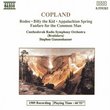
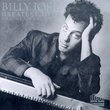
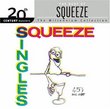
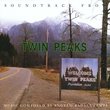

![Chapter I: A New Beginning [ENHANCED CD]](https://nationalbookswap.com/cd//m/51/3951/373951.jpg)
